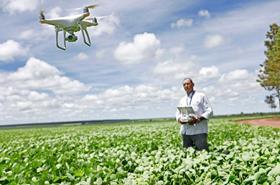
Bayer and Swedish nonprofit organisation Quantified Planet have signed a licensing and cooperation agreement under which Bayer will donate proprietary, crowd-sourced plant data from more than 70 countries about specific plant types, locations, occurrence and distribution.
under the agreement, Quantified Planet will then make this data available for scientific research into biodiversity and thus for better understanding of climate change and its implications for sustainable agriculture.
The groups are also co-developing mobile applications to engage civil society, for example people in cities, to address global challenges such as conserving biodiversity, something that plays an important role in meeting the Sustainable Development Goals and Targets that form the 2030 Agenda adopted by the United Nations – the first products are expected to be launched in 2018.
'Biodiversity is life on earth. A rich and diverse natural world provides us with food and is the basis for many economic activities, including agriculture,' said Tobias Menne, head of digital farming at Bayer. 'We are excited to collaborate with Quantified Planet. By donating and sharing proprietary data we contribute to research into biodiversity for the benefit of both agriculture and civil society.'
'We strongly believe that the power of digital data from businesses and private citizens can help change the way we live on our planet,' said Maja Brisvall, executive director and co-founder of Quantified Planet. 'Inspiring civil society, especially young people and children in cities, to explore the SDGs via free and openly accessible scientific data is an innovative approach.
'Together with our global Future Earth Network we will also bring renowned scientists on board to analyse the data provided by Bayer,' Brisvall added.
According to Bayer, strengthening the global sharing of scientific data and research findings is crucial to developing innovative solutions to address global challenges such as the growing world population, the increasing demand for food, feed and renewable raw materials, limited arable land and climate change.
'Bayer is convinced that Digital Farming is not only about to revolutionise agriculture worldwide, making farming smarter, more effective and sustainable; digital technologies can also help improve the quality of people’s lives, achieve equitable growth and protect the environment.'



